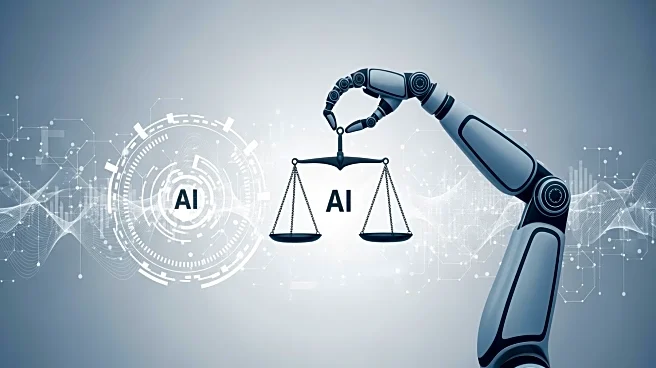What's Happening?
The insurance industry is increasingly integrating artificial intelligence (AI) into its operations, revolutionizing traditional processes such as underwriting, pricing, and claims fraud detection. Historically,
insurance companies have been significant adopters of technology, with early examples like Travelers Insurance Company installing IBM mainframe computers in the 1960s. The current phase of AI adoption marks a significant leap, allowing tasks that previously took hours to be completed in seconds. However, this rapid advancement also brings potential downsides, such as increased vulnerability to cyberattacks and the risk of AI-generated fraudulent claims.
Why It's Important?
The adoption of AI in the insurance sector is poised to enhance efficiency and accuracy, potentially leading to cost savings and improved customer service. However, the industry must also navigate the challenges posed by AI, including ethical concerns and the potential for misuse. Companies that effectively leverage AI could gain a competitive edge, while those slow to adapt may fall behind. The balance between innovation and risk management will be crucial as the industry continues to evolve.
What's Next?
As AI technology continues to develop, insurance companies will need to implement robust security measures to protect against cyber threats and fraudulent activities. Additionally, regulatory bodies may introduce new guidelines to address the ethical and legal implications of AI use in insurance. Companies will likely continue to invest in AI research and development to refine their systems and maintain a competitive advantage.
Beyond the Headlines
The integration of AI in insurance raises questions about data privacy and the potential for bias in AI algorithms. Insurers must ensure that their AI systems are transparent and fair, avoiding discrimination against certain groups. The industry's approach to these challenges could set precedents for other sectors adopting AI technology.









